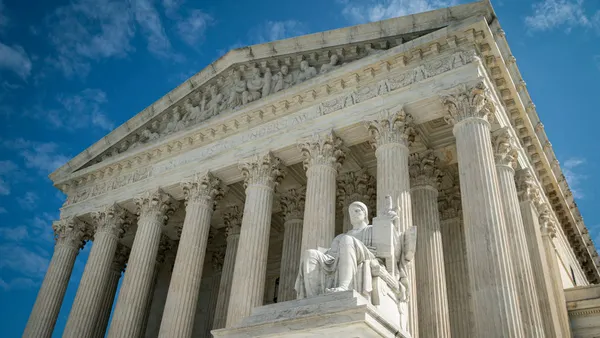Dive Brief:
- An oil refinery violated the National Labor Relations Act (NLRA) when it suspended an employee who raised safety concerns about a new procedure (St. Paul Park Refining Co., LLC v. National Labor Relations Board, No. 18-2256 (8th Cir. July 8, 2019)).
- The employee and a colleague brought their concerns to a unit-process engineer; the engineer updated the written procedure and supervisors signed off on it. When the employee noticed that the actual setup was contrary to what was in the written procedure, creating a possible explosion risk, he declined to perform a requested mitigation step and was sent home from work. He was eventually suspended for 10 days without pay and denied his quarterly bonus.
- An Administrative Law Judge and the National Labor Relations Board (NLRB) concluded that the employer had illegally retaliated against the employee. On appeal, the 8th U.S. Circuit Court of Appeals affirmed. The employee had engaged in protected concerted activity, and the employer's stated reasons for disciplining him were inconsistent. Additionally, the employer could not prove that it would have taken the same action absent the employee's protected activity.
Dive Insight:
The NLRA protects workers who engage in "concerted activity," even if those workers are not unionized. Examples of protected concerted activity include:
- Conversing with co-workers about compensation or other working conditions.
- Putting forth a petition for better hours.
- Refusing to work in unsafe conditions.
- Joining together with colleagues confront an employer, government agency or the media about workplace problems.
Cracking down on workers who discuss pay with each other is illegal, as several employers (including Lowe's and Burger King) have recently found out the hard way.
The NLRB notes that employees can lose protection by "saying things about your employer that are egregiously offensive or knowingly and maliciously false, or by publicly disparaging your employer's products or services without relating your complaints to any labor controversy."
In a recent case, the NLRB ruled that an employee's garden-variety complaining, absent any kind of call to action, was "mere griping" that was unprotected.
In general, punitive action against employees — either threatened or actual — tends to raise NLRB hackles when concerted activity is involved. Yelling at workers on protected heat breaks to "get back to work" did not violate the NLRA in one recent case because there was no indication that adverse action was contemplated, even though the order was issued in a loud and aggressive way.










